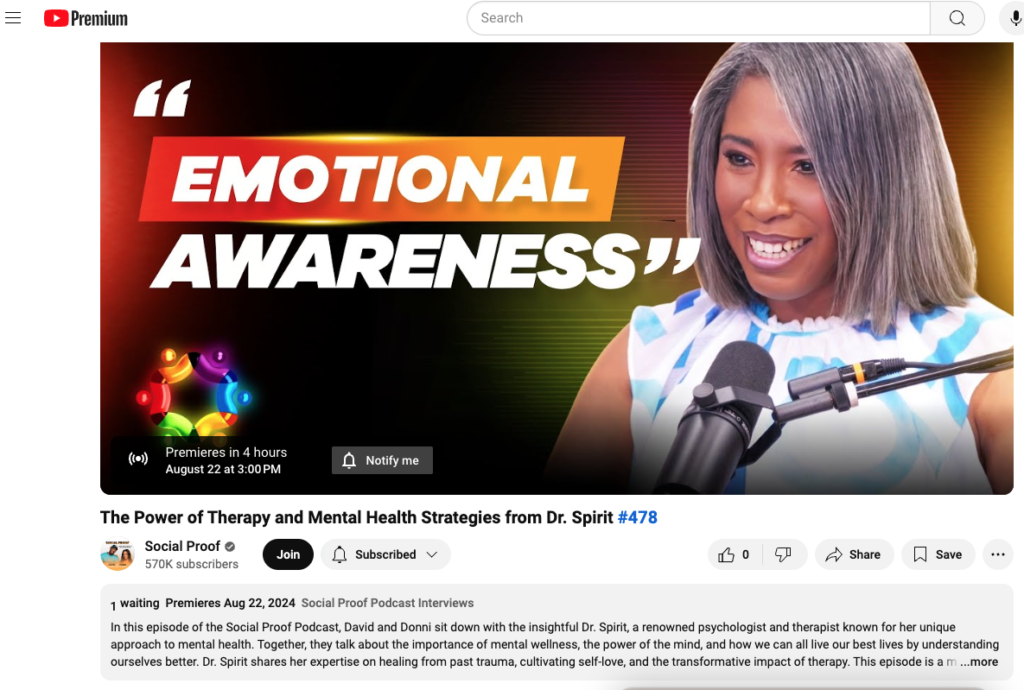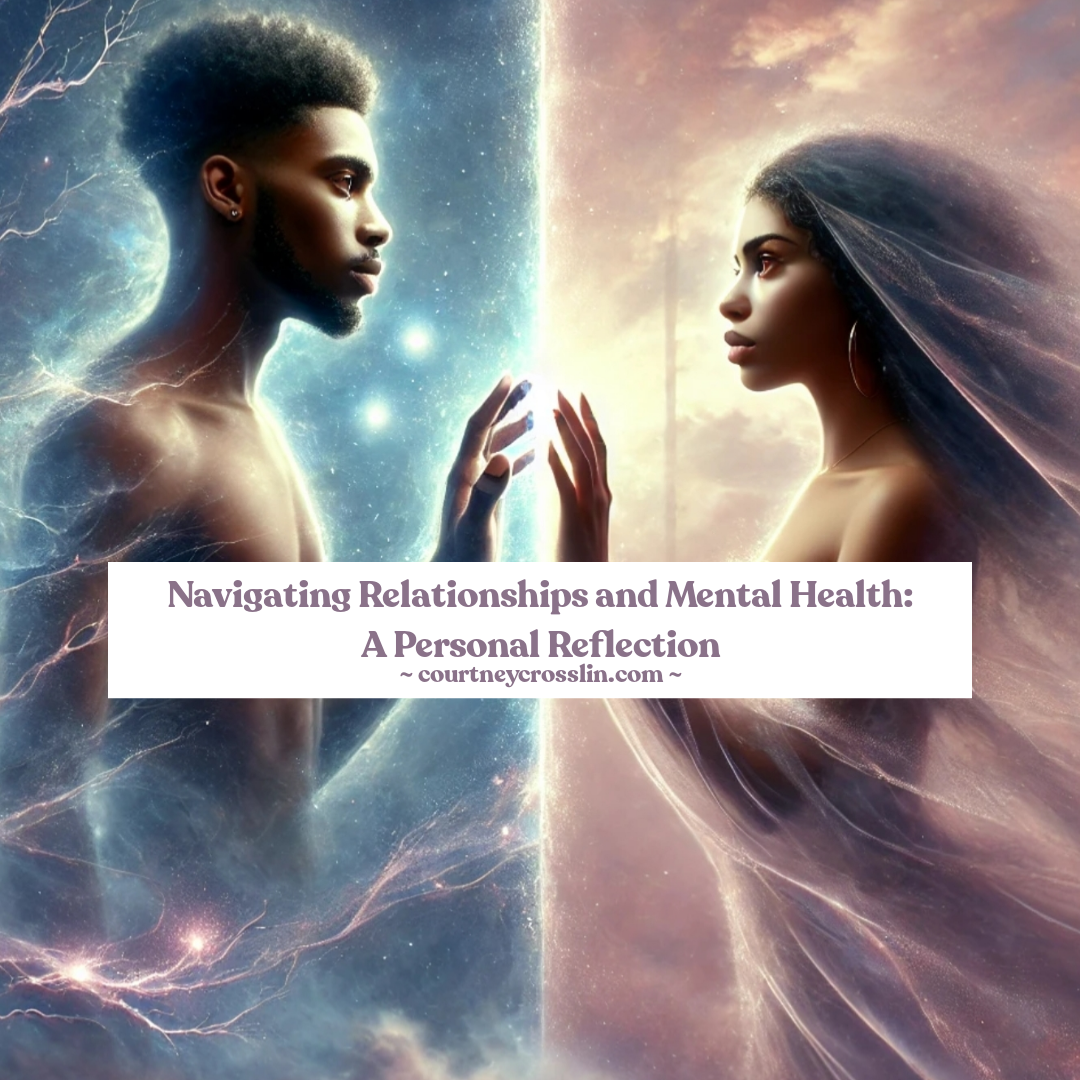Good morning. Today is August 22nd, 2024.
As I sit here outside with the noise of fans in the background, I find myself reflecting on a personal experience that has been weighing on me for a while. It’s something I feel compelled to share, not just for my own peace of mind, but in the hopes that it might resonate with others who are in similar situations—those who are caregivers, family members, or partners of someone managing mental health challenges.
Listen To Part 1:
Transparency has always been a cornerstone of who I am, especially within my relationships. When I started dating my most recent partner, I was open about it with my community/The Porch. For me, transparency isn’t just a word; it’s a way of life that builds trust and fosters connection. But as our relationship unfolded, I encountered challenges that I hadn’t anticipated, challenges that many of us don’t often talk about openly.
My partner had a history of mental health challenges, and had been hospitalized before we reconnected. When we began our relationship, I was aware of his past, but I didn’t fully understand what it would mean to be in a partnership where these challenges were a part of our everyday lives. I lacked the tools, knowledge, and emotional preparedness to navigate what came next.
Listen To Part 2:
One of the most difficult moments in our relationship came when things escalated, and his mental state became a concern—not just for him, but for me as well. I found myself in a situation where I had to balance my love and support for him with the need to protect my own well-being. It’s a challenging balance, one that many caregivers and loved ones must find, often without much guidance or support.
Boundaries are essential in any relationship, but they become even more critical when mental health is involved. It’s easy to blur the lines between being a partner and a caregiver, but without clear boundaries, you can quickly find yourself overwhelmed and emotionally depleted. It’s crucial to recognize when you need to step back, seek help, and prioritize your own health.
Throughout our time together, I became increasingly aware that those around my partner—his friends and family—were often hesitant to address his challenges directly. There was a reluctance to confront the reality of the situation.
Ultimately, I had to make the decision to end the relationship and I asked him to move out, not out of a lack of love, but because I needed to protect my own mental and emotional health.
This experience has reinforced my belief in the importance of empathy—not just for the person navigating their mental health, but for ourselves as well. We often hear about the importance of caring for others, but it’s equally important to care for ourselves. Self-care isn’t about being selfish; it’s about ensuring that we have the strength and capacity to support others without sacrificing our own well-being.
Read: 11 Essential Questions to Consider in Relationships and Mental Health
I also want to share my thoughts on the Baker Act, which allows for involuntary psychiatric evaluation when someone is in a state of crisis. While this can be a necessary step, it’s also a reminder of how vital it is to have a strong support network in place—people who can provide the care and accountability that is often needed.
However, I also believe there are many alternative approaches to mental health that aren’t practiced enough within Western medicine. Different cultures have various methods of addressing mental health, and it’s important to consider these alternatives, especially when traditional methods may not fully resonate with the individual’s needs.
To those of you who are in a similar situation—whether as a partner, family member, or caretaker—I extend my deepest empathy. I know how exhausting it can be, both emotionally and physically. But I also want to emphasize the importance of education.
Before you commit to a relationship with someone who is navigating mental health challenges, it’s crucial to educate yourself about their needs, the resources available, and the boundaries you need to set for your own well-being.
Mental health is a complex and deeply personal experience that affects not just the individual, but everyone around them. If you find yourself in a relationship with someone facing these challenges, please take the time to educate yourself, explore all possible approaches, seek support, and most importantly, take care of your own mental and emotional health. It’s a journey that requires compassion, resilience, and a deep understanding of both yourself and your partner.
I hope my experience serves as a reminder that while love is powerful, it’s also important to recognize when you need to step back and prioritize your own well-being. It’s not about giving up; it’s about knowing your limits and ensuring that both you and your loved one receive the care and support you deserve.
Update: 10:22 AM August 22, 2024
I just opened YouTube and I see this upcoming premier. I guess it’s a theme for the day. If you’re interested in watching here is the link.

